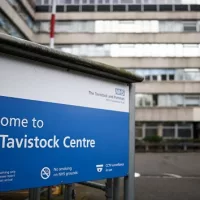
 luchschen/iStock/Thinkstock(NEW YORK) — The National Academies of Sciences released a statement on Thursday expressing a consensus opinion, following a days-long summit, on how human gene editing may be used, and outlining ethical concerns.
luchschen/iStock/Thinkstock(NEW YORK) — The National Academies of Sciences released a statement on Thursday expressing a consensus opinion, following a days-long summit, on how human gene editing may be used, and outlining ethical concerns.
Gene editing and similar techniques, the academy says, are “already in broad use in biomedical research,” while also noting that they may have a wider range or practical applications. The group calls for basic and preclinical research to proceed — within legal and ethical bounds — but says any early human embryos or germline cells that undergo gene editing “should not be used to establish a pregnancy.”
Specifically, it is unclear whether such editing — while holding the possibility of eliminating genetic diseases or enhancing human capability — could be done safely and/or effectively. Until such time that those issues are resolved, the NAS says proceeding to such lengths “would be irresponsible.”
The academy did note, however, that with scientific advances occuring and societal views changing, such questions should be revisited on a “regular basis.”
Copyright © 2015, ABC Radio. All rights reserved.














